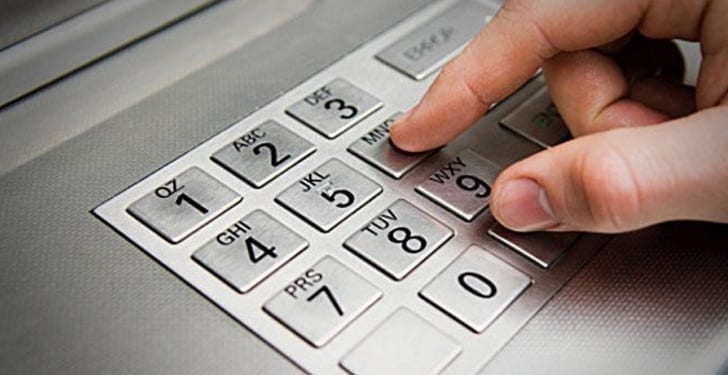Your PIN is your Personal Identification Number. It is the number or characters that if entered when requested by an ATM machine or POS terminal or any other electronic payment channel grants access to your bank account or electronic wallet.
The implication of this is that if any person knows your PIN, such a person is one step away from having access to your account or e-wallet. If you are not using a chip card the PIN alone is enough for a fraudster to access your account. However, if you are using a chip based credit/debit card the fraudster will need to also have access to your card. That however should not give you a false sense of security.
In this page we will discuss PIN security and provide some tips on protecting yourself from the consequences of a compromised PIN.
To completely secure your PIN and account you must begin to liken it to your signature. In fact Your PIN is a signature that authorise withdrawals from your account. It authorises all electronic transactions from your account.
This signature may also include other characters; in this case, it will be called a password or a passphrase. No matter the name they must all be seen as a signature. For example if you believe that anyone can sign your signature the first thing you will do is to change your signature, you should also change your PIN if you have any reason to believe that your PIN has been compromised.
Identity theft is now on the increase in Nigeria and worldwide. The most popular target for identity theft are account access information like PINs. Here are a few tips to help you secure your PIN:
Change your default Pin as soon as the card is issued to you
Your ATM or Debit card comes with a default PIN which can easily be compromised due to handling and paper trails. Because of this you should change your PIN as soon as possible. Simply slot it into an ATM machine and select change PIN.
The safest place for your PIN is your memory/brain
As soon as you change your PIN commit it to memory. It is safest in your brain than any other place. Destroy all paper trail of your PIN and all other confidential account access information.
Change Your PIN occasionally
On the internet there is a security tip that you should change your password every six months. This is not a bad tip for your account access PIN either. The longer you use your Pin, the greater the chances of it being compromised.
Change your PIN if you have any reason to believe that it has been compromised
If you have any reason to believe that anyone can sign your signature, you are most likely to change it. Apply the same common sense (wisdom) for your personal identification number.
Simply slot it into an ATM machine and select change PIN. However if your Card is missing call your bank and block it as soon as possible.
Do not reveal your PIN to anyone
Every now and again, you will receive an email or SMS purporting to be from your bank or any other person or organisation for that matter requesting you to send your PIN, password or passphrase for some reason.
The email or SMS will attempt to make you believe that there is a problem with your card and that by submitting your PIN the problem will be solved. Never make the mistake of revealing your PIN under any circumstances, not even to a bank official.
Never fall for that no matter how compelling. Your PIN grants access to your account, do not disclose it to anyone. Do not forget to change your PIN from time to time.








